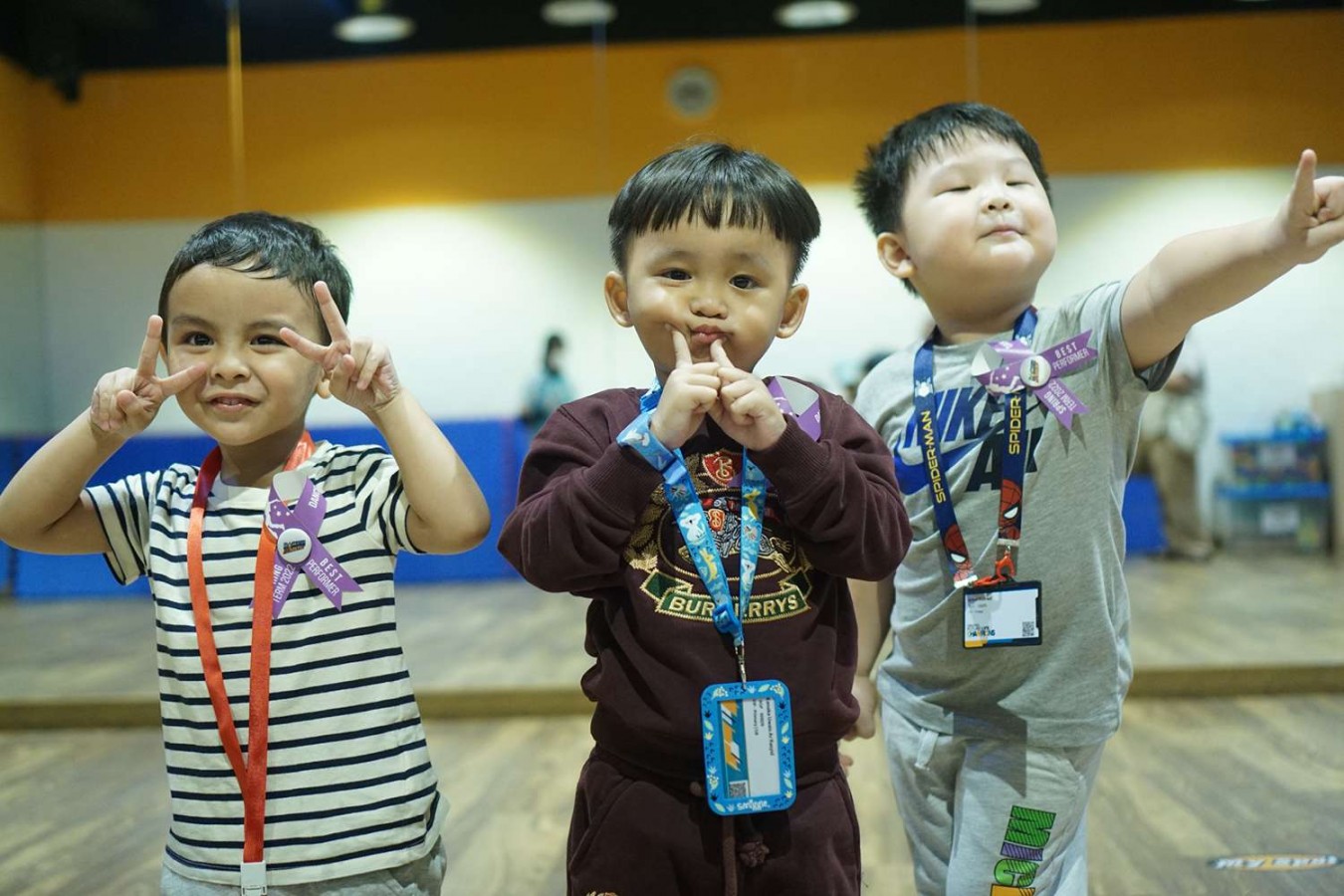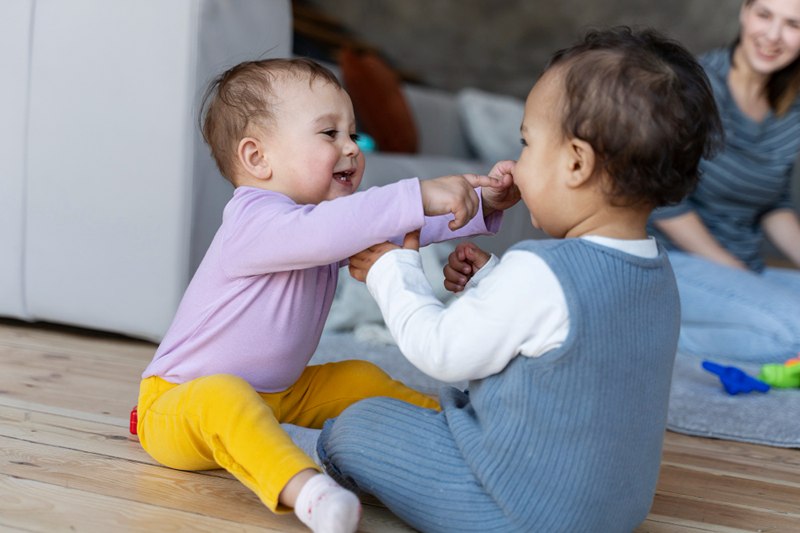Building Strong Social Skills for Children: Advice for Parents

In the journey of childhood development, few skills are as paramount as social skills. These abilities not only shape how children interact with the world around them but also lay the foundation for their future relationships and success.
As a parent, fostering strong social skills for children is a crucial aspect of their overall growth and well-being.
Social skills encompass a broad range of abilities, including communication, empathy, cooperation, and problem-solving. In this article, we'll explore effective strategies and advice for parents to help nurture and develop strong social skills in their children.
What Are Social Skills in Children?
Social skills in children refer to their ability to interact, communicate, and engage effectively with others in various social settings. These skills include but are not limited to, verbal and nonverbal communication, empathy, cooperation, conflict resolution, sharing, taking turns, and understanding social cues.
Developing strong social skills enables children to form and maintain positive relationships, navigate social situations confidently, and work cooperatively with others, laying the foundation for their social and emotional well-being as they grow and mature.
Why Are Social Skills Important?
Social skills are crucial for enabling individuals to have and maintain positive interactions with others.
They play a vital role in making and sustaining friendships. In social settings, interactions may not always run smoothly, and individuals need to implement appropriate strategies, such as conflict resolution, when difficulties arise.
Moreover, having empathy, which involves putting oneself into someone else's shoes and recognizing their feelings, is essential. It allows individuals to respond in an understanding and caring way to how others are feeling.
Overall, social skills are important for fostering healthy relationships, resolving conflicts, and demonstrating empathy towards others, contributing to overall social well-being and harmony.
Based on National Council of Special Education, here are several examples of social skills that children should have:
- Taking turns — waiting their turn during activities or conversations.
- Using eye contact — looking at the person they’re speaking with.
- Reading facial expressions — noticing others’ emotions through their faces.
- Calling people by name — addressing friends and teachers correctly.
- Offering help — stepping in when someone needs assistance.
- Handling wins and losses — celebrating kindly and accepting defeat calmly.
- Sharing items — letting others use their things or materials.
- Asking for support — seeking help when something feels difficult.
- Using proper voice — speaking at a suitable volume and tone.
- Solving disagreements — talking through problems instead of arguing.
- Listening attentively — paying full attention without interrupting.
- Staying focused in conversation — keeping to the topic being discussed.
- Sharing thoughts — expressing ideas clearly and politely.
- Waiting calmly — showing patience in lines or group activities.
The Benefits of Developing Social Skills for Children
Developing social skills is crucial for children as it provides them with a strong foundation for healthy relationships, effective communication, and overall well-being. Here are some benefits of developing social skills for children:
1. Better Outcomes
Developing strong social skills in children leads to better outcomes in various aspects of their lives.
These skills enable them to communicate effectively, collaborate with others, and navigate social situations confidently, which contributes to academic success, positive behavior, and overall well-being.
2. More Success
Children with well-developed social skills are more likely to experience success in both academic and personal endeavors.
They are better equipped to work in teams, solve problems collaboratively, and build positive relationships with teachers, peers, and other authority figures, setting them up for success in school and beyond.
3. Stronger Friendships
Social skills are essential for forming and maintaining meaningful friendships. Children who possess strong social skills can engage in reciprocal communication, share interests, and resolve conflicts constructively, leading to stronger and more fulfilling friendships that provide support and companionship.
4. Reduced Stress
Developing social skills can help children manage stress and cope with challenging social situations more effectively.
By learning how to communicate their needs, express their feelings, and seek support from others, children can navigate social interactions with greater confidence and resilience, reducing stress and promoting emotional well-being.
How Can Parents Tell If Their Child Has a Social Skills Problem?
Parents can identify potential social skills problems in their child by observing certain behaviors. These may include fleeting eye contact, inconsistent use of eye contact, or fixed staring during interactions.
Additionally, difficulty taking turns in conversations, struggles with using appropriate body language such as standing too close or far from others, and failure to use polite forms of communication like saying "please," "thank you," or greetings and farewells could indicate challenges in social skills development.
Moreover, if a child has difficulty starting and ending conversations appropriately, it may suggest underlying social skills deficits that require attention and support from parents or professionals.
To help you out, here are social skills checklist for parents:
- Prefer to play alone rather than with other children?
- Struggle to make or keep friends?
- Have difficulty joining group activities or play?
- Miss social cues, such as facial expressions, tone of voice, or body language?
- Take jokes too literally or get confused by sarcasm?
- Interrupt others frequently without realizing it?
- Talk mostly about their own interests and have trouble with back-and-forth conversation?
- Stand too close or touch others without noticing personal boundaries?
- Have frequent conflicts or misunderstandings with peers?
- Get easily frustrated during play when things don’t go their way?
- Struggle with sharing, taking turns, or cooperating during games?
- Avoid social situations or feel anxious around new people?
- Become overwhelmed in busy, noisy, or crowded environments?
- React with big emotions (crying, anger, shutting down) during social interactions?
- Insist on playing a certain way and get upset when others change the plan?
- Have trouble adapting to group rules or routines at school?
- Receive feedback from teachers that they have challenges interacting with classmates?
- Rarely get invited to playdates, parties, or social events?
- Withdraw or isolate themselves during group play?
- Show difficulty starting or maintaining conversations?
Social Skills Children Will Learn Based on Their Age and Supporting Activities
Children learn social skills little by little—almost like leveling up in a game! Each stage brings new abilities, from smiling at a caregiver to understanding others’ feelings and solving conflicts with friends.
1. Infancy (0–12 months): First Social Connections

Even before they can talk, babies are soaking in social interaction. They respond to voices and faces, smile socially, and begin back-and-forth “conversations” through coos and eye contact. These early interactions build trust, attachment, and the foundation of emotional communication.
Try this:
- Smile and talk to your baby often
- Play peek-a-boo or gentle back-and-forth games
2. Toddlers (1–3 years): Exploring People and Play

Around toddlerhood, children begin to notice other children and adults as social partners. They often engage in parallel play which playing near others without directly interacting. This isn’t a “lack of social ability,” it’s a normal step toward true peer interaction.
Typical skills they build:
- Saying “hello,” “mine,” “no”
- Beginning to take turns
- Showing empathy like bringing a toy to a crying friend
Activity ideas:
- Encourage simple group play
- Read books about feelings
- Model sharing and polite greetings
3. Preschoolers (3–5 years): Play Together and Share
%20Play%20Together%20and%20Share.jpg)
Now things get exciting: children start cooperative play, where they interact, share goals, and negotiate rules with others. They begin to form simple friendships and show concern for how their actions affect others.
Fun activities to boost social skills:
- Group art or building projects
- Pretend play (house, store, superheroes!)
- Turn-taking games with simple rules
4. Early Elementary (6–8 years): Teamwork & Friendship Confidence
%20Teamwork%20%26%20Friendship%20Confidence.jpg)
Elementary-aged kids grow quickly in social awareness. Friendships deepen, and kids begin to understand fairness, cooperation, and problem-solving within groups.
Boost these skills with:
- Team games or structured group play
- Group problem-solving activities
- Activities that require planning and cooperation
5. Teens (9–12 years): Empathy and Peer Awareness

As children approach their tweens, their friend circles matter more, and social rules become more complex. They begin to understand others’ perspectives and navigate group dynamics with more confidence.
Activities that help:
- Clubs or group projects
- Collaborative art or construction challenges
- Guided discussions about feelings and fairness
What Parents Can Do to Develop a Child's Social Skills?
To foster the development of their child's social skills, parents can take proactive steps to provide guidance and support. Here are some strategies they can employ:
A. Play with Your Child
Engage in play activities with your child to foster joint attention, turn-taking, shared interests, cooperation, and appropriate play with toys. Play serves as a natural and enjoyable way for children to develop social skills while bonding with caregivers.
B. Express Emotions
Help your child understand and express their own emotions while also teaching them to recognize emotions in others. Encourage open communication about feelings and provide support and guidance in managing emotions effectively.
C. Encourage Empathy
Foster empathy in your child by helping them understand and recognize how other people are feeling in various situations. Encourage perspective-taking and teach the importance of considering others' feelings and experiences.
D. Share Social Stories
Utilize social stories to teach children specific social skills they may find challenging or confusing. These stories provide detailed descriptions of social situations and suggest appropriate responses, helping children better understand and navigate social interactions.
E. Join Social Skill Groups
Consider enrolling your child in social skill groups specifically designed to help them master social interaction with peers.
These groups provide structured opportunities for practicing social skills in a supportive environment and learning from peers and trained professionals.
Invest in Your Child's Social Skills Journey Now!
Building strong social skills in children is a gradual process that requires patience, guidance, and consistent reinforcement from parents. Investing time and effort into nurturing these skills from an early age can set children up for success and fulfillment in their personal and professional lives.
Are you looking for an enriching early childhood education experience that combines learning with fun and creativity? At our Sports & Performing Arts Academy, we believe in providing children with a well-rounded education that nurtures their academic, physical, and artistic abilities.
With our free trial, your child can experience firsthand the dynamic learning environment, expert instruction, and exciting activities that set Rockstar Academy apart.
Join us with Rockstar Academy's free trial today and discover the difference that Rockstar Academy can make in your child's educational journey!
FAQ
How can children improve their social skills?
Children can improve their social skills through activities such as playdates, group activities, and guided interactions that encourage communication, empathy, and cooperation.
How do you teach social skills?
Social skills can be taught through modeling positive behaviors, practicing active listening, role-playing social situations, using social stories, and participating in social skill groups or workshops.



